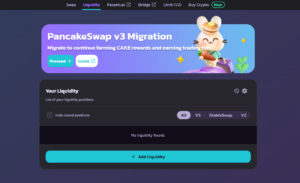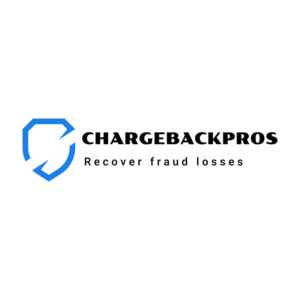Nobody in the payments industry likes chargebacks. The card networks in particular regularly make some effort to bring chargeback rates down, often by inventing more rules and requirements for merchants to follow, but Mastercard is trying out a different approach with the new version of Mastercom Collaboration.
Building on their existing collaboration framework, this new system provides merchants and their acquiring banks with more opportunities to resolve disputes before they go through the full chargeback process. How does the new version of Mastercom Collaboration work, and what can it do to help merchants avoid chargebacks?
- What is Mastercom?
- How Does the Mastercom Collaboration Process Work?
- What are the Benefits of Using Mastercom Collaboration?
- Conclusion
Sometimes, a dissatisfied customer is determined to get a refund, and if they can’t get one from the merchant, they’ll get one from their bank via the chargeback process.
The chargeback process was never intended to address subjective disputes between merchants and customers over things like product quality, but many people are willing to engage in “friendly fraud” and fabricate dispute claims in order to get their bank to agree to give them the chargeback.
Merchants can fight these fraudulent chargebacks and get them reversed, but this takes time and effort, and they still count against the merchant’s chargeback ratio.
The better solution is to prevent chargebacks before they happen in the first place, and chargeback deflection services were created to facilitate this. These services give merchants a chance to respond to a dispute-in-progress before it becomes a chargeback.
While some disputes can be deflected simply by providing the cardholder with more information about the transaction, many require the merchant to offer up a refund. Even the purposeful friendly fraudsters can be neutralized in this way, and a refund—even when it’s undeserved and unaccompanied by a product return—is always cheaper and less harmful to your business than a chargeback.
When Visa acquired Verifi and Mastercard acquired Ethoca, two of the leading providers of chargeback deflection services, these card networks were able to start integrating the possibility of deflection into their dispute inquiry process. This makes early dispute avoidance accessible to a wider range of merchants, who must now incorporate inquiries and deflection into their overall chargeback management strategies.
What is Mastercom?
Mastercom is Mastercard’s dispute management platform, which merchants can access via API connections enabled by their acquirer or payment processor. Mastercard created Mastercom to make the chargeback process run more smoothly and allow merchants to respond to certain inquiries, called retrieval requests, which precede chargebacks.
When Mastercard issuers receive a dispute claim, they can send a retrieval request to ask for more documents and information about the transaction.
This can sometimes resolve the dispute without turning it into a chargeback, such as when cardholders dispute transactions because they forgot they made them and they don’t recognize the information on their billing statement.
When the merchant can provide additional details that jog their memory, they should realize that they did authorize the purchase and withdraw their dispute accordingly.
How Does the Mastercom Collaboration Process Work?
Previously, the Mastercom Collaboration tool was only available to participating issuers and merchants who signed up for Ethoca’s chargeback alert service. Enrolled merchants receive an alert any time a cardholder from an enrolled issuer initiates a dispute, and they have a short window of time in which to respond to the alert by issuing a refund and eliminating the need for a transaction dispute.
In July 2022, Mastercard began involving acquiring banks in the Mastercom Collaboration process. The workflow that disputes follow will depend on whether or not the issuing bank and the merchant have signed up with Ethoca.
If they have, Ethoca will pass along the inquiry and handle its resolution. Otherwise, the inquiry gets handed over to the acquiring bank, who can respond on the merchant’s behalf. The acquirer can ask the merchant for direction or respond according to previously-given instructions. If the inquiry reaches the merchant, they have 72 hours to respond.
The options available to the merchant (through their acquirer) are as follows:
- Accept the dispute and issue a refund, either directly to the cardholder or through Mastercard. Mastercard may charge fees for both the dispute and any refund that they initiate, but the dispute will not be counted as a chargeback.
- Ignore or reject the dispute. This will result in a chargeback, which the merchant can attempt to reverse through the representment process. However, it will still be count against the merchant’s chargeback ratio.
Mastercard will also be making participation in Mastercom Collaboration mandatory for issuers, where previously it was optional for them.
What are the Benefits of Using Mastercom Collaboration?
It’s in every merchant’s best interests to make use of Mastercom Collaboration to avoid chargebacks whenever possible. In some cases, such as high-value transactions where you have a lot of compelling evidence on your side, it may make sense to fight a chargeback instead. But most of the time, pacifying a frustrated cardholder with a refund is the only way to prevent their dispute from escalating.
Offering a refund lets you avoid chargeback fees and keeps your chargeback ratio from increasing into “excessive” territory, which can put your merchant account in jeopardy.
More importantly, a quick refund can turn a dispute into a positive customer experience. If the customer has a good reason to want their money back, there’s no reason to drag them through a long dispute process. Make them happy and they might become loyal customers again in the future.
Conclusion
Mastercom Collaboration is just one of many tools that merchants have at their disposal for preventing chargebacks. Deflection tools are powerful, and can keep your chargeback ratio from growing out of control, but if you’re relying on them too heavily you may be losing revenue to mishaps and errors that could be avoided entirely with a more data-driven approach.
By analyzing the customer and transaction data related to collaboration inquiries and other dispute-related scenarios, you can discover what situations, policies, and business practices are causing them to occur.
With that knowledge, you have the ability to address disputes at their point of origin and take effective, targeted actions to prevent them from happening again.











